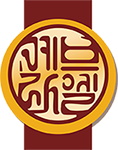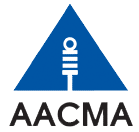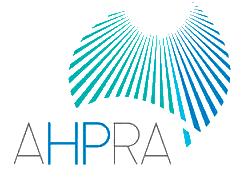What is Acupuncture ?
Acupuncture is part of Traditional Chinese Medicine, Which Originated in China over 5,000 years ago. This science and art of healing has become widely accepted over the past three decades. It has now been established as a profession in Australia and has proved to be safe and effective.
Acupuncture is a form of natural healing which has the following major benefits:
- drug-free pain relief
- assists prevention against disease
- treat the cause as well as the symptoms
- holistic approach to illness, linking body, mind and emotions
- effectively treat many common ailments
How does it work?
The goal of acupuncture therapy is to establish a healthier state of body function and to increase the capacity to cope with stress.
The human body can be likened to a highly complex electrical circuit. Like any electrical circuit, it must be kept in good working order if it is to function effectively. If the human circuit breaks down the result is illness.
Each person has an energy circulation. To maintain good health, it is essential for the body’s energy, as well as the blood, to circulate in a continuous and unobstructed manner. The pathways through which the energy flow are called meridians and these circulate through the organs and tissue of the body. The energy which flows along the meridians is called Qi (Chi). These meridians were mapped out by the ancient Chinese. Modern technological methods such as Kirlian photography, electronic, and thermal readings are now being used to detect these meridians.
There are over 500 acupuncture points and these lie along the meridians. By stimulating these points with needles, the quality and quantity of energy (Qi) and fluids can be normalized. Often an area or acupuncture point is warmed and stimulated by a Chinese herb. This process is called Moxibustion. Suction cups and massage may be utilized to enhance the treatment.
How can acupuncture help me?
There are three main ways where acupuncture therapy can help.
- Treating specific disorders to provide relief of symptoms and reduce complications. Acupuncture is also used to treat the cause of the disorder and reduce the likelihood of its recurrence.
- Maintenance treatment of a long term problem: This is to provide a more comfortable state of health and reduce the need for medication and surgery.
- Chinese Medicine is an effective form of preventive medicine because of its ability to detect and treat energy imbalances before they lead to disease.
The earlier a disorder is detected the better, so regular check-ups are recommended.
How many treatments do I need?
The number and frequency of treatments depends on several factors. These include the duration and intensity of your present disorder. Your age, constitutions, and individual circumstances, such as your desired health goal, are also taken into account.
Traditional Chinese Medicine recognizes you as a complex blend of body, mind and emotion. During the first visit, your practitioner is concerned with all aspects of your health. Details of your medical, surgical and family history and other relevant information such as exercise habits and occupation are collected. A general physical examination is conducted and the tongue and pulse are studied.
This allows an overall assessment of your current disorder, and gives an understanding of its cause. Your acupuncturist can then give you a general idea of how many treatments are required.
What will be my response to treatment?
Often the first response you notice is a change in your general health. Sleep, digestion and energy often improve. Individual variations do occur; some people respond quickly to treatment while others show a gradual improvement.
What can I do to assist my therapy?
Moderation in all things is a good principle. Some things you can do include:
- Setting a personal health goal
- Regular intake of fresh air and water
- Enjoyable nutritious meals
- Balanced physical exercise
- Interesting recreation
- Positive mental attitude
- Adequate rest and relaxation.
Quality & professional standards
- B. H. Sc., (Acupuncture)
- Chinese Medicine Practitioner
- Full member of Australian Acupuncture & Chinese Medicine Association Ltd. (AACMA)
- Disposable needle only
- Herbal supplements available to patients
- Private Health fund rebates
What does acupuncture treat?
There is a wide range of disorders that can be treated. You are advised to consult your acupuncturist for an opinion.
The World Health Organization (December 1979) recognizes a number of disorders that have been successfully treated by acupuncture. These are emphasized in bold print in the following list which also includes other common disorders that respond well to acupuncture.
Neurological
Headaches, migraines, difficulty sleeping, nervous tension, stroke, some forms of deafness, facial and inter-costal neuralgia, trigeminal neuralgia, some forms of paralysis, sequelae of poliomyelitis, peripheral neurophathy, noises in the ears, dizziness, Meniere’s disease.
Cardio-Vascular system
High or low blood pressure, fluid retention, chest pain, angina pectoris, poor circulation, cold hands and feet, muscle cramps.
Respiratory System
Bronchial asthma, acute and chronic bronchitis, acute tonsillitis, rhinitis, sinusitis, hay fever, chronic cough, laryngitis, sore throat, influenza and the common cold.
Digestive System
Toothache, post-extraction pain, gingivitis, mouth ulcers, hiccough, spasms of the oesophagus, gastric and duodenal ulcers, gastric hyperacidity, gastritis, heartburn, hiatus hernia syndrome, flatulence, paralytic ileus, colitis, diarrhoea, constipation, haemorrhoids, liver and gall bladder disorders, weight control.
Uro-Genital System
Cystitis, prostatitis, orchitis, low sexual vitality, urinary retention, kidney disorders, nocturnal enuresis, neurogenic bladder dysfunction.
Gynaecological and Obstetric Disorders
Premenstrual tension, painful, heavy or irregular, or the absence of periods, abnormal uterine bleeding or discharge, hormonal disturbances, disorders associated with menopause, prolapse of the uterus or bladder, difficulty with conception, morning sickness.
Skin
Eczema, dermatitis, psoriasis, nerve rash, herpes zoster, acne, scar tissue and resultant adhesions, hair loss and dandruff.
Eyes
Visual disorders, red, sore, itchy or watery eyes, conjunctivitis, simple cataracts, myopia in children, central retinitis
Musculo-Skeletal System
Osteoarthritis, sciatica, lumbago, weak back, low back pain, rheumatoid arthritis, gout, tenosynovitis, shoulder and neck pain, cervicobrachial syndrome, “frozen shoulder”, “tennis elbow”.
Sporting Injuries
Sprained ankles and knees, cartilage problems, corking and tearing of muscles, torn ligaments and bruises.
Psychological
Depression, phobias, emotional disturbances, anxiety, nervousness and addictions such as smoking.



